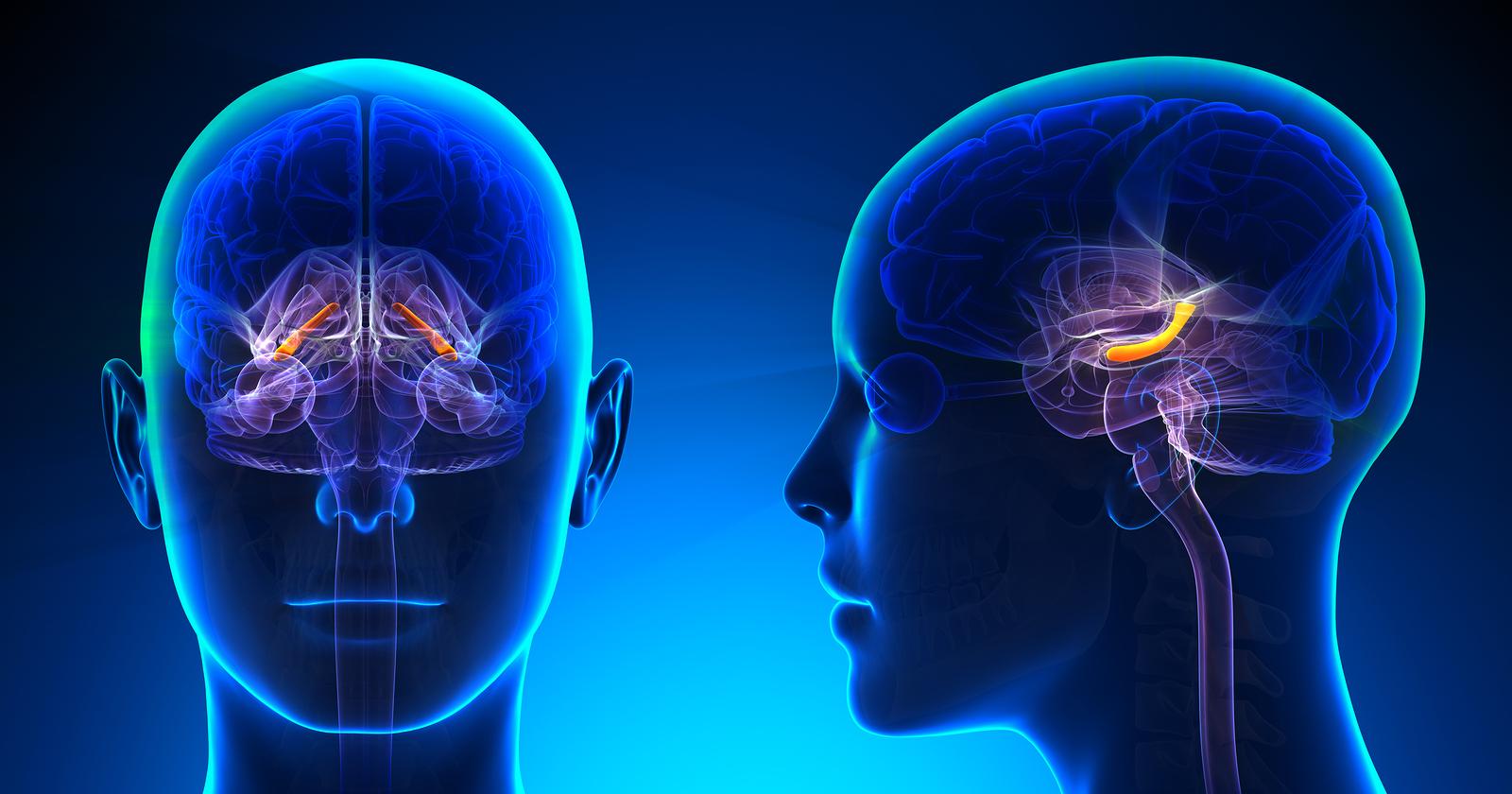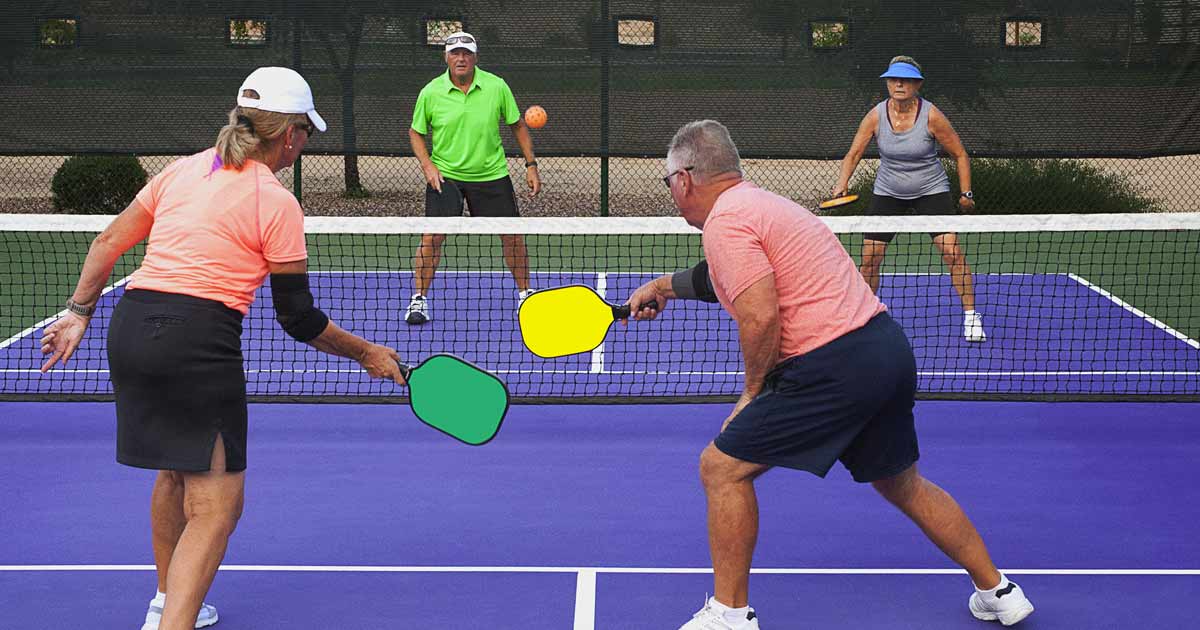How Pickleball Benefits Alzheimer's Disease And Dementia
Pickleball is a sport involving two to four players who hit a lightweight ball over a net. Games are played on a court, and the activity is similar to tennis. As a sport, pickleball is regulated by the International Federation of Pickleball and was first played in 1965 in Washington state. Pickleball can be played as singles, doubles, and mixed doubles (both men and women on the same team). The sport can be adapted to any ability level, and many individuals use it as a hobby. Like other forms of exercise, pickleball can benefit the mind and body. It can reduce stress and provide a gentle workout, and it is also a chance to interact with others. Pickleball can be particularly beneficial for patients with dementia or Alzheimer's disease. The benefits outlined below are just some of the ways in which this sport enhances the lives of individuals with memory issues.
Strengthens The Hippocampus And Prefrontal Cortex

The prefrontal cortex is an area of the brain situated within the front part of the frontal lobe. It is responsible for a variety of complex behaviors, governing how individuals make plans and decisions and playing a large role in the development of an individual's personality. Located in the medial temporal lobe, the hippocampus is part of the limbic system of the body. This system regulates emotions and the storage of long-term memory. It is also involved in spatial navigation. Studies have shown exercising regularly can help strengthen the hippocampus, allowing it to increase in size. The decision-making and planning skills controlled by the prefrontal cortex are also improved through exercise. As a low impact activity that requires strategizing and quick thinking, pickleball strengthens the hippocampus and prefrontal cortex. This activity enables individuals with Alzheimer's disease and dementia to exercise more regularly, and it challenges them to stimulate their minds in ways other routine activities may not.
Reveal the next way in which pickleball can benefit Alzheimer's disease and dementia patients.
Improves Memory

Pickleball improves memory by building the hippocampus. In this way, it may help slow down the progression of dementia and Alzheimer's disease. Pickleball is considered an aerobic activity, a type of exercise that increases an individual's heart rate. Studies have shown aerobic activities provide a memory boost not seen in other forms of exercise such as resistance training and balance-strengthening exercises. For patients at risk of developing Alzheimer's and dementia, pickleball and other aerobic activities may decrease the risk of these conditions. In fact, researchers found walking one mile per day may reduce the risk of Alzheimer's disease and associated memory conditions by as much as forty-eight percent. In addition to being an aerobic activity, pickleball requires participants to make decisions quickly, and this may also enhance memory and preserve cognitive function.
Get the details on the next benefit of pickleball on Alzheimer's disease and dementia.
Improves Overall Mood

Studies have indicated exercise improves an individual's overall mood, releasing hormones associated with positive feelings. In fact, some medical professionals consider aerobic exercise to be just as effective as medication for alleviating the symptoms of mild depression. With the fast pace of a pickleball game, participants have to focus on the present moment, which can be a helpful tactic in developing mindfulness techniques and avoiding ruminations about the past or worries about the future. Pickleball is a team sport, and it can also help participants build new friendships and have positive interactions. This may help individuals feel valued and reduce the feelings of depression and loneliness that often accompany dementia and similar conditions.
Speaking of the social aspect of pickleball, learn more about how this can help with Alzheimer's disease and dementia.
Lowers Social Isolation

Several studies have confirmed a link between loneliness and social isolation and an increased risk of dementia and Alzheimer's disease. For patients living with these conditions, social isolation may happen as they lose cognitive function. Having difficulty communicating with others and struggling to remember names, faces, and events may make it difficult for dementia patients to socialize, particularly due to frustration on both ends. In addition, the fatigue and other side effects caused by dementia medications may mean patients are not able to socialize regularly. While patients with dementia may be able to continue living independently in the early stages of the disease, as the illness progresses, patients may need to be moved to a specialist memory care facility; this sometimes increases social isolation.
Pickleball represents an important opportunity for dementia and Alzheimer's patients to lower their social isolation, as it allows them to feel a sense of community and belonging. Since the game is centered around the task of hitting a ball, patients do not have to struggle with remembering faces or names; they can just enjoy being around others, even if they cannot remember their names all the time, and having fun. It is a low-stress activity patients at various stages of dementia can enjoy. Since pickleball involves little equipment and can be played indoors, it is an activity that can be easily incorporated into the social activities offered at memory care facilities and nursing homes, and patients and caregivers can have impromptu games together.
Learn more about the ways in which pickleball benefits patients with Alzheimer's disease or dementia now.
Continually Challenges The Brain

Pickleball continually challenges the brain, providing stimulation of a number of different aspects of cognition and movement. The sport requires patients to coordinate their movements to hit the ball and score points, and they must also use muscle control to keep their balance and move their arms while playing. In addition to the physical aspects of the game, players are also challenged mentally. To succeed in pickleball, they have to make fast decisions about where they wish to direct the ball to earn the most points, and they also have to anticipate their opponent's likely movements and play defensively. Players on doubles teams also have to coordinate strategies with their team members and make decisions together. Overall, pickleball provides many challenges for the brain that may help patients preserve cognitive function for longer, possibly reducing the amount of medication needed or delaying the need for medication due to Alzheimer's disease or dementia.